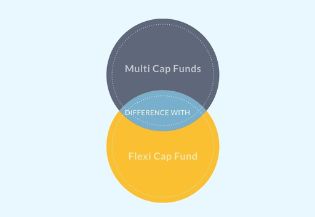
HELP LINE +91 9883818627

HELP LINE +91 9883818627






A recent committee report on mutual fund cost and remuneration talks about decreasing trail and eventually stopping it after a few years. While I respect regulators, policy makers and various committees who are working hard to give us a solid framework to grow business, I assume distributors also to have freedom to express their thoughts on various issues which impacts them. Forums like WealthForum are excellent platforms to do this and I hope my observations will be taken in the right spirit by regulators, AMCs and distributors.
Decreasing trail or stopping trail
The recent committee report is suggesting following a decreasing trail model and eventually stopping the trail beyond a particular number of years the assets. I think this may not be a great idea. I have the following thoughts on this:-(a) Trail is not paid just for bringing in business. The whole idea of paying trail by AMCs to distributor is the premise of continuous service to client and ensuring that they remain invested so that AMCs also make their fee from the said investments. Trail is not a conflict of interest. It is rather proponent of good business practice.
(b) The cost of the client should be maintained at the level of TER and not micro management beyond that. Imagine this; If TER of a scheme is 2% and trail is reduced or stopped, the AMC may still charge a higher TER as allowed by regulators. This will not reduce the cost of investors (or may be only partly reduced) and so the idea of benefitting investors by reducing or eliminating trail will not work.
(c) The idea of decreasing trail commission also doesn’t make sense since it is against the fundamental premise of rewarding performance (ensuring investors to remain invested). Reduced trail will mean paying less for a good job done. Regulators and AMCs promote long term investing and therefore distributors promoting long term investment must not be penalised for it.
(d) Stopping trail makes absolutely no sense. If an investor already has the option to go direct to reduce his cost, what’s the point to stop trail if he chooses to take services of a distributor knowing that it will cost him a bit high. It will also promote churning which is against investor’s interest. Why will a distributor serve a client from whom he will not make any money? If this recommendation is implemented, this will lead to over regulation and the will of the policy makers to eliminate distribution fraternity and promote direct business which will essentially mean ‘taking away the choice from an investor’. I will go to the extent of saying that stopping trail after few years of investments will mean that distributors are only used to do to leg work, bring in customers in the system and then kicking them out of business. This must not happen. Let the choice remain with client whether he wants to go direct or through the distributor. Don’t force him.
So, what is the solution? I think managing TER is the right way to handle this and a win win situation for all stakeholders in the long term.
TER
I have written before and I write again. There remains a lot of scope to reduce the TER, both in debt and equity funds. When this happens, the cost of clients will go down and this is a better way rather than controlling clients cost through controlled trail commissions. Regulators haven’t touched TER since long. I reckon the time is coming soon when they will and when they do it, the cut won’t be small. It can be as much as 30-40% of the current rates. The cost structures in the fund management business remain high and it is definitely a barrier in the growth of the industry. Once TER comes under pressure, it will straight impact the trail commissions. However, the cut in trail will not be as sharp as TER. For example, if TER on an average comes down by 0.50%, trail won’t come down by the same percentile since AMCs will also need to cut down their own expenses and also take a hit on their margins. In the current context, trail is generally 50-60% of the total TER and reduction will be mostly in line with this percentage. There also remains a possibility that AMCs will absorb a major part of TER cut as they may fear that a high cut in trail may make the distribution non viable and thereby affecting their own growth.Industry growth once TER is brought down
In the initial period, some smaller AMCs may shut shop or sell their business to others since there business may not be viable. Also, a lot of IFAs (and other distribution channels) will exit the distribution business. This will have negative impact on the industry. However, the increased investor’s interest in mutual funds due to lower cost (resulting in higher returns) will more than offset the loss of business due to above reasons. When I look from the overall industry perspective, I could see more positives than negatives.Direct
Direct remains the biggest threat for the distribution business. It has demolished the liquid space and getting inroads into debt and equity space too. While the ratio of direct in non liquid business is still small (around 10%), it is bound to increase with every passing day. However, I believe the overall AUM growth will be much higher than the growth of direct share in non liquid space. This should give IFAs a respite. Since Direct is a reality and it’s going to stay, I would suggest IFAs to adjust their business model rather than panic and exit. There still remains a lot of scope in this business. If an IFA provides value and good advice to clients, clients generally stick to them. Some will go but I would rather increase my business to offset this loss. Now, there is a silver lining to this too. Once the TER is brought down, the gap between direct and indirect will reduce. This will curtail the flow of assets into direct to some extent. This alone can help distributor sustain on lower trail and overcome the risk of Direct. Stay put. If you can’t beat the other side, don’t concede either. It will still bring victory to you.Summary
(A) Regulation is extremely important. Over regulation will be bad.
(B) Since investors have the option to go ‘Direct’, there is no need to initiate decreasing trail and stopping trail.
(C) Their remains a scope to cut TER which will result in reduced cost for investors. This will be a win win situation for all stakeholders.
(D) Direct remains a risk for distributors and it seems it is going to stay. Rather than seeing the risk in it, distributors should focus in offsetting this risk by increasing their business and serving their clients better.
Mutual fund is a great industry. Let us all be responsible to make it big.




















